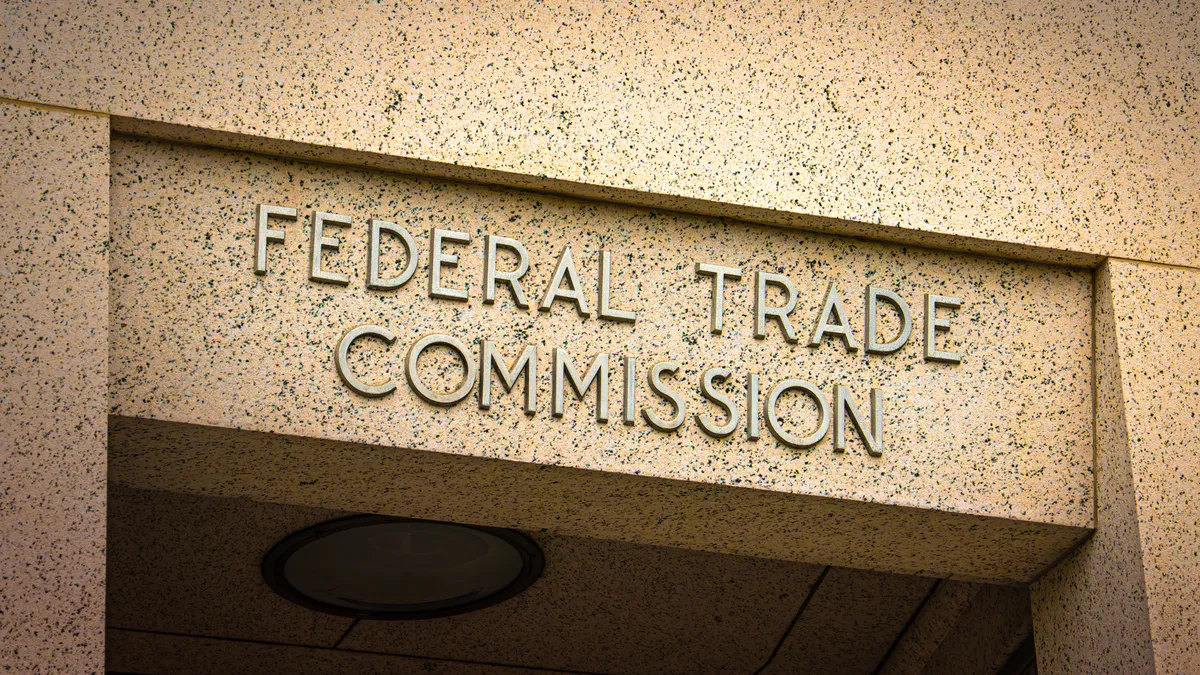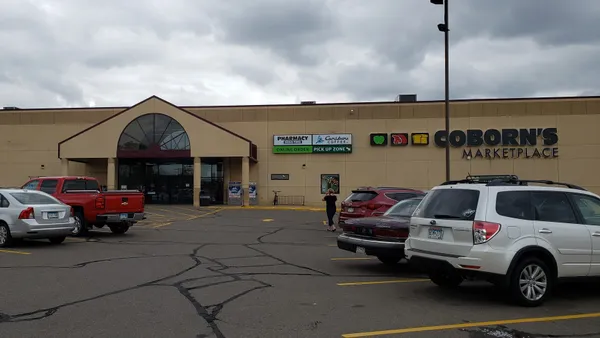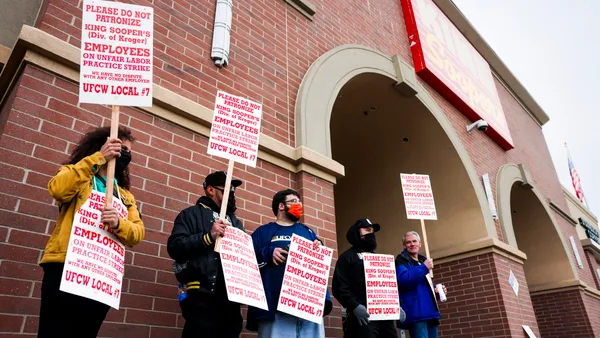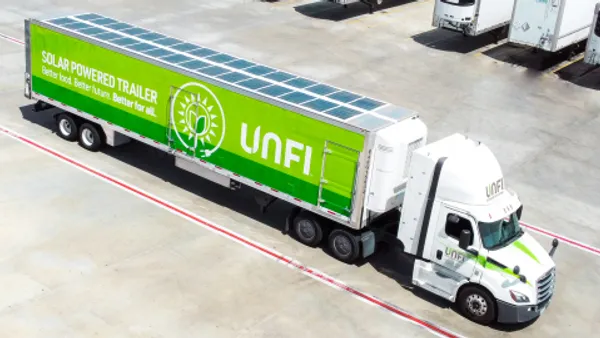Dive Brief:
- The Federal Trade Commission on Monday filed a federal lawsuit that seeks to prevent Kroger from proceeding with its plan to merge with Albertsons.
- Nine attorneys general have joined the complaint, which claims that the $24.6 billion deal would boost grocery prices for shoppers and harm workers for the grocery chains.
- The FTC rejected the companies’ plan to divest hundreds of stores to C&S Wholesale Grocers, saying in a statement that it “falls far short of mitigating the lost competition between Kroger and Albertsons.”
Dive Insight:
The FTC’s lawsuit offers a sweeping rebuke of the supermarket mega merger, arguing that the combination of Kroger and Albertsons would be anti-competitive and harmful to workers. The suit also cast as inadequate the companies’ $1.9 billion plan to divest 413 stores, eight distribution centers and five private label brands to C&S Wholesale Grocers.
“Kroger’s acquisition of Albertsons would lead to additional grocery price hikes for everyday goods, further exacerbating the financial strain consumers across the country face today,” said Henry Liu, director of the FTC’s Bureau of Competition, in a statement. “Essential grocery store workers would also suffer under this deal, facing the threat of their wages dwindling, benefits diminishing, and their working conditions deteriorating.”
The FTC said it has issued an administrative complaint and authorized a lawsuit in federal court to block the proposed acquisition pending administrative final steps.
The merger would “eliminate head-to-head price and quality competition,” the FTC said in its announcement. It could also lead to reduced compensation and benefits for the chains’ many union employees because of the “increased leverage” the combined companies would have over them, the commission alleged.
“The combined Kroger and Albertsons would have more leverage to impose subpar terms on union grocery workers that slow improvements to wages, worsen benefits, and potentially degrade working conditions,” the announcement noted. “In some regions, such as in Denver, the combined Kroger/Albertsons would be the only employer of union grocery labor.”
With its divestiture proposal to C&S, Kroger sought to avoid repeating Albertsons’ ill-fated 2015 deal with Haggen, which resulted in the bankruptcy of the Northwest grocer. But the FTC said Monday that the deal would create an inadequate competitor out of a “hodgepodge” of stores, brands and other assets across numerous states.
Although C&S is a prominent wholesaler, it would struggle to operate a successful grocery business out of the divested stores that could effectively compete with a combined Kroger and Albertsons, the FTC said.
“Even if C&S were to survive as an operator, Kroger and Albertsons’s proposed divestitures still do not solve the multitude of competitive issues created by the proposed acquisition,” the agency noted.
Ever since announcing the $24.6 billion deal in October 2022, the two grocery companies have weathered significant pushback and scrutiny from lawmakers, workers and consumer advocates as they awaited a decision from regulators. Opponents have claimed that the deal would hurt shoppers, suppliers and workers.
Kroger and Albertsons executives have repeatedly said the merger wouldn’t negatively impact grocery competition and would result in lower prices for consumers and more investments in employee wages. Kroger has pledged to not close any stores, distribution centers or manufacturing facilities or lay off any frontline workers as a result of the merger.
In a statement issued Monday, Kroger reiterated these points and said it plans to challenge the FTC’s suit in court.
“The FTC’s decision makes it more likely that America's consumers will see higher food prices and fewer grocery stores at a time when communities across the country are already facing high inflation and food deserts. In fact, this decision only strengthens larger, non-unionized retailers like Walmart, Costco and Amazon by allowing them to further increase their overwhelming and growing dominance of the grocery industry,” Kroger said in its emailed statement.
The United Food and Commercial Workers Union, which has vocally criticized the merger plan, intends to remain “in opposition to any merger that would negatively impact our hundreds of thousands of hard-working members who work at Kroger and Albertsons,” the union’s international president, Marc Perrone, said in a Monday statement.
If the merger does go to trial, both sides could face an uncertain legal path.
In 2007, for instance, the FTC filed suit to obtain a preliminary injunction to stop Whole Foods Market from acquiring rival Wild Oats Market, arguing that the deal would violate federal antitrust laws by reducing competition in multiple markets. In a press release about its decision to sue, the agency said it believed that Whole Foods would raise prices while reducing quality and services.
The district court that heard the case ruled against the FTC in August 2007, and a circuit court denied an appeal filed by the agency, paving the way for the merger to proceed.
But even after Whole Foods and Wild Oats combined, the FTC continued to pursue the companies on the grounds that the deal was unlawful. In March 2009, the agency announced a settlement with Whole Foods that required the grocer to sell 32 stores and related assets, including the Wild Oats brand.














